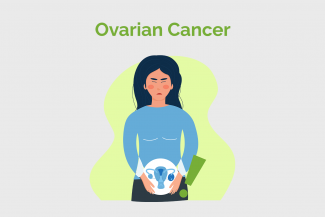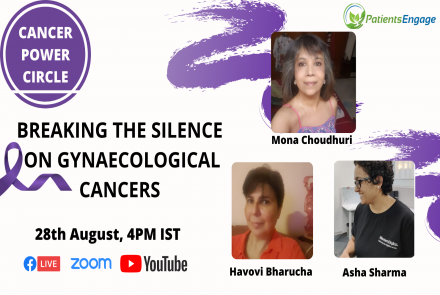Ovarian cancer is cancer that develops in one or both the ovaries. It can then spread to other parts of the body.
The annual incidence of ovarian cancer globally is 204,000. It has a high fatality rate as more than 70% are diagnosed at an advanced stage.

What tests do you need for Ovarian Cancer:
Ovarian cancer at its early stages (I/II) is difficult to diagnose until it spreads and advances to later stages (III/IV). This is because most symptoms are non-specific and thus of little use in diagnosis.
You doctor may do some of the following:
- Physical examination (including a pelvic, vaginal, rectal examination). For young patients, an MRI is preferred
- Transvaginal ultrasound
- Blood test (complete blood count, serum electrolyte test)
- CT or MRI scan
- Surgical procedures like laparotomy (incision through the abdominal wall) or keyhole surgery (laparoscopy) to take tissue samples and abdominal fluid for lab analysis
- Tumour marker testing
Epithelial cell tumours - Beta-HCG to rule out pregnancy
- CA 125 (if > 65U/ml is highly suggestive, not to be used in isolation for diagnosis)
- HE4 decreases false positives when combined with CA-125
- Inhibin mostly seen in mucinous subtypes
Granulosa-theca cell tumours - CA 125 is likely to be normal
- Inhibin (type B is usually higher than A)
- Estradiol is elevated
Germ cell tumours - CA 125 is likely to be normal
- B-HCG is elevated
- Alpha fetoprotein (AFP)* is elevated
- Neuron-specific enolase (NSE)*** is elevated
- Lactate dehydrogenase (LDH)** is elevated
*AFP is a major plasma protein produced by the yolk sac and the liver during foetal development.
**NSE is an enzyme seen concentrated in cancer cells.
***LDH is an enzyme involved in tumour initiation and metabolism.
Changed
28/Apr/2025
Community
Condition
















